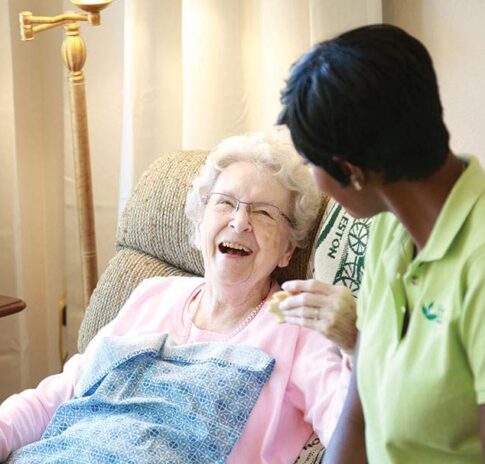 For many adult children, caring for their aging parents long distance is just a fact of life. You may live in one place, but your parents live thousands of miles away. You can’t pick up and move because of work or other family commitments. Talking on the phone daily is not the same as seeing them in person; you can’t judge for yourself how they are really doing.
For many adult children, caring for their aging parents long distance is just a fact of life. You may live in one place, but your parents live thousands of miles away. You can’t pick up and move because of work or other family commitments. Talking on the phone daily is not the same as seeing them in person; you can’t judge for yourself how they are really doing.
You are not alone. According to a study by Met Life, more than 80% of long distance care providers are working either full or part-time and more than four in ten had to rearrange their work schedules in order to take care of their caregiving responsibilities. Additionally, more than a third (36%) reported missing days of work, and 12% took a leave of absence.
Long distance caregiving can take a toll on you professionally, financially, and personally; but with a lot of planning it can work.
Here are some tips to make long distance caregiving easier on both you and your parents:
- Gather all important documents. These include all legal, personal, medical, financial, and insurance documents. Legal might include powers of attorney, medical proxy, wills, and trusts. Personal would involve a Social Security cards, driver’s licenses, marriage license, military discharge documents, and birth certificates. Before a crisis occurs, get a copy of all bank account numbers, prior tax filings, credit cards, sources of income (including Medicare and pensions where applicable), all assets and debits, and monthly bills. Medical information you should know includes insurance, doctor information, all medications, and the phone number and address for a local pharmacy. For insurance, don’t forget medical, homeowners, car, and life insurance policies.
- Develop a network. Depending on how far away you live, you might not be able to get there in an emergency. Therefore, establish a relationship with your parents’ neighbors, friends, or clergy members who can help. This person could also be designated to look in on your parents every once in awhile or share a meal with them. You will be amazed how eager people are to help if you ask them! If possible, see if your parents will allow you to give them a key.
- Make your time together count. When you go to see your parents, it can be more than just a social visit. It’s a great time to check up on them. Tell them you are tired and ask them to drive to the grocery store … do they get easily confused? Are their reflexes good enough to be driving? It might be a good idea to schedule an appointment at the dentist, eye doctor, family doctor and any specialists they are seeing while you are in town. That way you will know what is going on.
- Check out the house. Falls are all too frequent amongst the elderly. Do they have any loose carpeting or handrails that could cause a fall? Do they have light bulbs that need to be replaced or smoke detector batteries that are inactive? Ensure they have grab bars outside the shower, perhaps even a shower stool inside the shower. While you are there, you might be recruited to be a handyman. Work with the local fire department to install an emergency lock-box.
- Use technology. Many parents are in touch with today’s technology. With a little help, you can show them how to use Skype or Face Time so you can see for yourself how they are doing. Additionally, consider a medical alert monitoring system in case of an emergency. Today’s alerts have options that include automatic fall detection and GPS locator service.
At FirstLight Home Care, we can pinch hit for you when you can’t be there. Our companion care, dementia care, and personal care services ensure that your parents remain independent in their home for as long as possible. If not regular in-home care, we can provide a medical alert system. We are only a phone call away, offer a plethora of services and resources, and we are available 24/7!
